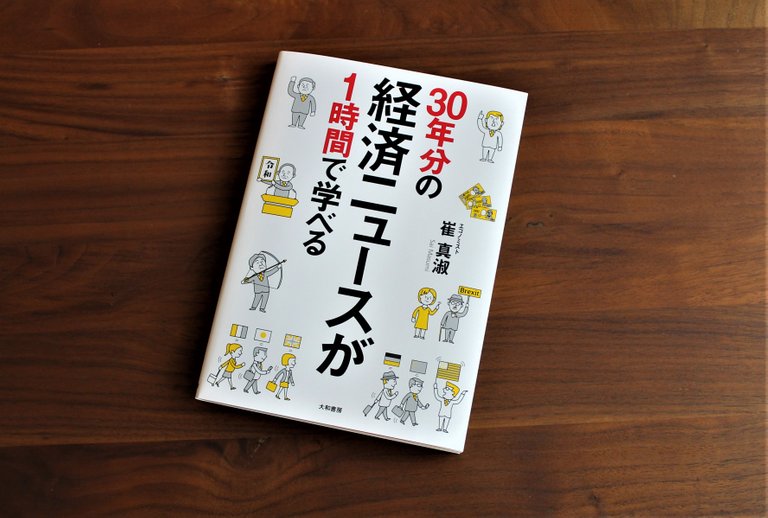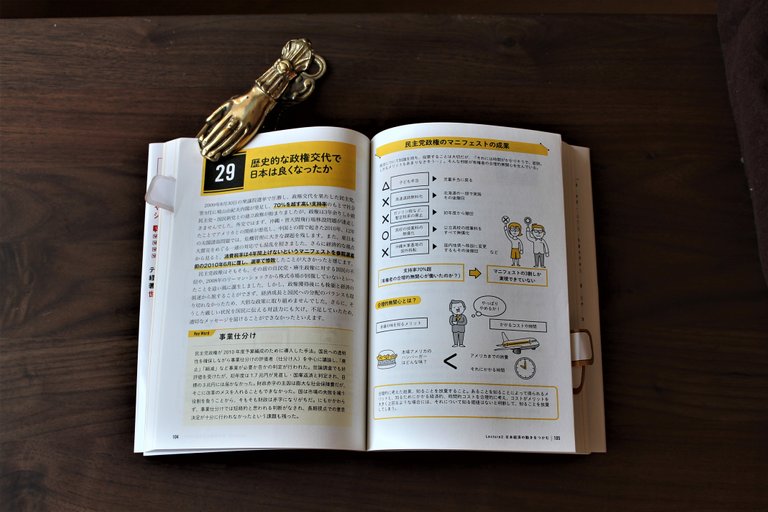平成もあと2日を残すところとなった。昨日発売されたこの本とともに、何度かに分けて、平成30年分のニュースを経済学の視点から振り返ってみたい。
The era of "Heisei" left two more days. 『30年分の経済ニュースが1時間で学べる』(30 years worth of economic news can be learned in 1 hour: Masumi Sai),that published yesterday, I would like to look back on the news for 30years from the economics point of view.
『30年分の経済ニュースが1時間で学べる』
崔 真淑 (著) 大和書房
■2009年 民主党の政権交代+「合理的無関心」
本書の1章は世界経済、2章からは日本経済の、特に平成という30年間のニュースに経済学的な視点での解説が書かれている。
まず興味深いのは、2009年に政権を取得した民主党政権の顛末だ。
First of all, I was interested in the analysis of the end of the Democratic Party administration that got power in 2009.
もう10年も昔のことだということに驚くが、民主党政権が短命に終わった直接の理由として、「消費税を4年上げない」とマニフェストを選挙直前に覆し、2010年の選挙で惨敗したことが大きかったと解説している。民主党政権といえば、2011年の東日本大震災の際の不手際が指摘されるが、その前に弱体化が始まっていたことを再確認できる。
The book explains that the Democratic Party administration's short-lived cause was that the manifesto was "imposed for four years without consumption tax" and that it was largely defeated in the 2010 election.
また、そもそも当初の民主党政権に70%の指示が集まった理由として、それ以前の民主党の麻生政権に対する国民の不安に加えて、有権者の「合理的無関心」が働いたのではないか、と著者は指摘する。
The author points out that the "Rational apathy" of the voters has worked as the reason for the 70% of the directions to the Democratic Party administration.
合理的無関心とは、合理的に考えた結果、知ることを放棄してしまうことだ。政治に知るためには時間がかかる。本当は大事なことだが、自分にそこまでメリットがないと判断すると、人は知ることを放棄してしまう。
Reasonable apathy is to give up what we know as a result of thinking rationally.
有権者の合理的無関心が働き、政権を奪取したが、マニフェストの3割しか達成していないという残念な結果に終わった。また国民に人気の高かった「事業仕分け」でも、財政赤字の主因である社会保障費に切り込めなかったこと、国家は本来「市場の失敗」を補う役割のはずが、事業仕分けでは短期目線での判断が行われたという課題も記されている。
Although the Democratic Party took over the administration, it was disappointing that only 30% of the manifesto could be achieved.
日々のニュースは流れていってしまうものだ。平成の終わりに、こうしてまとまった時代を振り返るのは意義のあることだ。
Daily news is flowing. At the end of Heisei, it is worthwhile to look back on the time that has been made.
本書には88のテーマが設けられている。今後も本書をもとに、印象に残った話題を記しておきたい。
There are 88 themes in this book. Based on this book, I would like to write down topics that left an impression.

